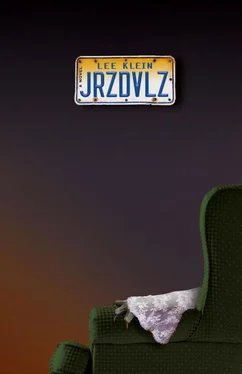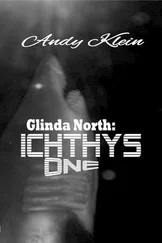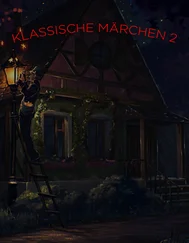Lee Klein - Jrzdvlz
Здесь есть возможность читать онлайн «Lee Klein - Jrzdvlz» весь текст электронной книги совершенно бесплатно (целиком полную версию без сокращений). В некоторых случаях можно слушать аудио, скачать через торрент в формате fb2 и присутствует краткое содержание. Город: Montclair, Год выпуска: 2017, ISBN: 2017, Издательство: Sagging Meniscus Press, Жанр: prose_magic, на английском языке. Описание произведения, (предисловие) а так же отзывы посетителей доступны на портале библиотеки ЛибКат.
- Название:Jrzdvlz
- Автор:
- Издательство:Sagging Meniscus Press
- Жанр:
- Год:2017
- Город:Montclair
- ISBN:978-1-944697-32-7
- Рейтинг книги:3 / 5. Голосов: 1
-
Избранное:Добавить в избранное
- Отзывы:
-
Ваша оценка:
- 60
- 1
- 2
- 3
- 4
- 5
Jrzdvlz: краткое содержание, описание и аннотация
Предлагаем к чтению аннотацию, описание, краткое содержание или предисловие (зависит от того, что написал сам автор книги «Jrzdvlz»). Если вы не нашли необходимую информацию о книге — напишите в комментариях, мы постараемся отыскать её.
Jrzdvlz — читать онлайн бесплатно полную книгу (весь текст) целиком
Ниже представлен текст книги, разбитый по страницам. Система сохранения места последней прочитанной страницы, позволяет с удобством читать онлайн бесплатно книгу «Jrzdvlz», без необходимости каждый раз заново искать на чём Вы остановились. Поставьте закладку, и сможете в любой момент перейти на страницу, на которой закончили чтение.
Интервал:
Закладка:
“I promise not to halt your forward flow through years as long as you promise not to make sudden hostile moves or launch traps,” I said.
December seemed to have reverted to the girl I had met by the river. That look of wonder. For some, my hideous form seemed a feat of nature.
The barn sheltered hay and manure, appetizing swallows, and huffing horses, the personal transportation of the era. I pictured Stearns on that black rearing horse rendered in painting and sculpture. He had lived with images of himself atop a fierce and superior animal. It must have affected his psyche, no matter how wrong so many had thought him.
I asked what became of that horse.
“Olympus lives on in generations he sired. He had been a brother to me, but my father lost him in some negotiation that required he be delivered to Wharton’s stables.”
“I imagine it discolored your appreciation of Mr. Wharton?”
“I pledged to take from Wharton as much as I could by manipulating all available levers. When Wharton first discovered December long ago, he rode him, and when we met, December remembered the magnificent horse. That connection made it clear we should be together, both exposed so young to mighty Olympus.”
“It seems outlandish,” December said, “but it is true.”
“Olympus,” I said.
“Wharton treated the horse with the respect of someone with the means to do so, of course, but he did not realize the consequences of wrenching such an animal from a boy my age. He cleaved my spirit from my soul, amputated the best part of my life, and only years later did he sell us a yearling from which most steeds on this estate have sprung. I felt robbed and reduced, and I blamed Wharton for possessing that unique natural resource. His skill was to determine the value of something before others began to see it. Ore, the pinelands aquifer, Olympus. This horse, anyone might appreciate, but Wharton realized how its owner and master would be associated with the animal’s extraordinary attributes. For me, I loved that horse, believed it an essential part of me, and because of that love and the loss of it to Wharton, years later here you are, ready to discuss, I presume, my plans for Wharton’s lands.”
“It is a moving story,” I said, “but why avenge someone now deceased?”
“Because the insult motivates me, and motivation, whether noble or wrathful, leads to unexpected places. I thrive on that anger, and perhaps even Wharton himself would want me to use it if it helped me secure the future for December and our children.”
“But you only think of yourself and the insult but not anyone you will harm. You think of your own children but not those you seek to displace.”
“Untrue!” Stearns elevated his voice. He seemed cheerful, not combative. “I want to ensure that no young ones harbor such ill feelings. It is for their health and well-being we propose to claim possession of Wharton’s lands so they better serve those in need. Wharton’s plan to move the water to the city cannot be critiqued on a philanthropic level, but it would have cost too much and taken too long to perfect. I heard him speak to the council about his so-called dream of pure water, and after first insulting us he touched me with his insistence that all other systems were flawed and misguided if not unethically conceived. So strident he was when it came to his convictions. Feats of engineering would be required to access quantities of water to sustain our urban areas, and even then, who knew if these plans could ever be implemented correctly. Would the water remain pure when stored in reservoirs and piped though tunnels beneath the Delaware? When it emerged into ‘every Philadelphian sink,’ as Wharton liked to say, would it be better than what the population now drinks to its detriment? There is a considerable resource of fresh water beneath the pines and the city needs a potable source. Wharton’s plan brings the water to the people. My plan brings the people to the water. Our charitable instincts are exact. Yet my plan is easier to initiate than even the filtration plans. Why is the city faced with sickness? Because it is overcrowded. And why overcrowded? Do the poor find communal living alluring? Or do they expose themselves to it out of necessity?
“The history of the world is the history of necessity. Colonists populated this land out of necessity, cities rose out of necessity, everything can be traced to need. Great need for pure resources and improved living spaces can now be fulfilled with one bold stroke. Knowing the poor would prefer to live in nature as God intended, closer to a paradise of the primeval garden, if we transfer their need to live near industry by transferring the location of industry to regions plentiful in open space and natural resources, all needs are met, with the added benefit of improving the city by depopulating it, which is another great and pressing need obvious to everyone. The city needs saving, not by pumping water from distant lands but by transferring its occupants elsewhere. In this way, and only in this way, all needs are met for the land, the people, the industry, and the city. All benefit, and none are left wanting. And with that we return to Olympus, to a young man left wanting, a sensation I understand too well, the ache of loving and losing and forever carrying that longing in one’s heart. I am not bashful to admit that the degree to which I wanted that horse returned, my need for it, made me who I am today: someone who understands what it means to want, and who, in turn, provides for everyone in need.”
As he was speaking, the stable walls gave way to a vision of my home territory transformed into a productive industrial paradise. Everywhere, the aquifer was tapped so pillars of fresh water spewed into the air, and on clear days the pinelands were lousy with rainbows. Beneath their arcs, laborers from the south and the southern countries of Europe who once devolved in a stew of unbecoming humanity now skipped through open spaces en route to work and home again, all around them the natural world joined in harmony with their presence, and all flourished, radiant, the whites of their eyes as clear as crescent moons. Oh to have been born into a paradise not conceived by the poignant ache (Stearns’s phrase) of longing caused by a horse’s possession by Wharton instead of a boy.
“Would it not,” I began, “be easier to improve the current conditions in the city, leaving the pines as they are, not untapped and unoccupied but reserved space open to all for enjoyment if not settlement. The area is altogether prone to wildfire, engaged in a constant process of renewing itself by conflagration. Even if the water beneath the pines extinguished those fires, the damage would devastate workers displaced there, and then where would they go and what sort of work would they find if all they have according to your model is the industry they work for, with no real opportunity to develop their own concerns or buy land of their own unless you intend to sell acres of Wharton’s tracts once you have manipulated them into your possession.”
Stearns tried to look away from me and concentrate on my words, for it was clear he had not quite acclimated to their source. December, too, seemed as though she sat not on a bale of hay in a stable on her property but floated on a cloud through dreams.
“The details,” he said, “of our plans for the pines and the transportation of many of its people to work camps are more complicated than you present them. We would hope to allow workers a stake in their industry, but better would be if the companies provided land and homes. Instead of owning land and, with that, the liberty to defile it, the industries would oversee everything and the workers would populate it and take pleasure and rest and refresh themselves for their daily return to their labor. As it is now, they return to squalor, where their wages are extracted in exchange for shelter of the most questionable degree. It is absolutely corrupt, this system, and yet you seem to argue in favor of its perpetuation. Much needs to be done, but if the workers leave these unsuitable shelters, these owners will give them up to the city and the city will raze them and redesign slums as parks and promenades and attractions of international regard, so Philadelphia will be known as the Paris of the Atlantic Coast, an enlightened, civilized, smaller sister city of the infinitely sprawling New York. Every consequence of our actions has been addressed including wildfires and flood, but for now, after initial planning, we are in the implementation stage, which begins by debasing the land we wish to possess and develop into a true paradise.
Читать дальшеИнтервал:
Закладка:
Похожие книги на «Jrzdvlz»
Представляем Вашему вниманию похожие книги на «Jrzdvlz» списком для выбора. Мы отобрали схожую по названию и смыслу литературу в надежде предоставить читателям больше вариантов отыскать новые, интересные, ещё непрочитанные произведения.
Обсуждение, отзывы о книге «Jrzdvlz» и просто собственные мнения читателей. Оставьте ваши комментарии, напишите, что Вы думаете о произведении, его смысле или главных героях. Укажите что конкретно понравилось, а что нет, и почему Вы так считаете.












